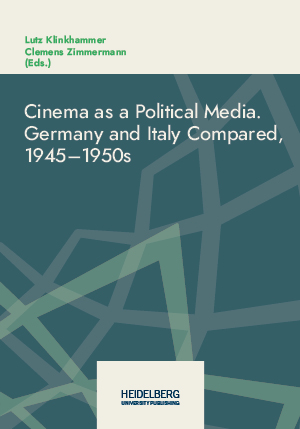How to Cite
Identifiers (Book)
Published
“Italians and not Italians”. Fascism and National Identity in Post-war Italian Cinema
One of the themes at the heart of the collective debate in the years following the war was the question of responsibility. In Italy a publicly accepted version of past events was soon pieced together. This showed the desire within society and the political parties to remove Fascism as a significant component of the national identity. Cinema was to become one of the points of reference in the fabrication of this public narration. On the screen among 1945 and mid-Fifties a clear picture emerges of a fundamentally guilt-free Italy. Italian cinema pieces together a definition of new identity-creating perimeters, openly ratifying which side was which (the Italians pictured as a community) and who was to blame (the Fascists, an easily recognisable minority given their choices and behaviour). Only during the Sixties, films portrayed Blackshirts as a kind of “national” protagonist in Italy’s evolution from dictatorship to the republic. The argument over fascism was brought to light again by leftish directors in an attempt to condemn events in the past, but more importantly those in the present. At the same time, there was an attempt by the commercial cinema of the “economic miracle” to call time on fascism as painlessly as possible, representing this as a collective experience for Italians in their moral journey from dictatorship to democracy. Both strains of thought demonstrate how Fascist characters at least had been definitively included within the nation’s history and community.







